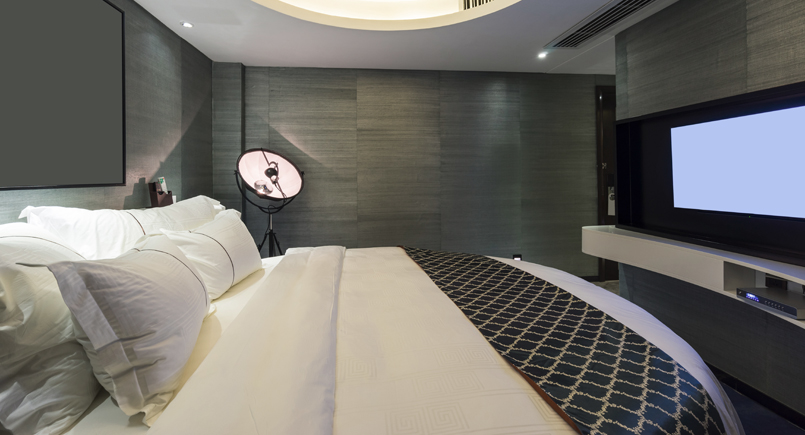
Cutting Edge Hotel Technology – A Growing Trend?
Technology has grown to play a major role in our lives – could you imagine not being able to browse the Internet on your smartphone? Naturally, its reach has spread significantly in the hospitality sector over the past decade.
Cutting-edge technologies completely drive the design of some hotels, as displayed by plans for a revolving hotel on the Croatian island of Solta, and even more ambitious, a hotel in space!
Although it’s unlikely that floating and rotating hotels will become a common sight in travel guides (at least not for a couple of decades), sophisticated systems and everyday gadgets are influencing hotel room design on a much wider scale.
Even the most basic hotel rooms feature sleek flat screen HDTVs and provide access to an abundance of power sources, allowing guests to keep smartphones, tablets, laptops, MP3 players and other gadgets fully charged to their heart’s content.
But it’s not just being used to keep guests enthralled, entertained and occupied.
Much of the advanced technology hotel contractors and designers are incorporating into their work can alter the atmosphere and contribute to reduced energy usage – benefitting both guests and hotel owners.
Lighting and climate controls allow guests to tweak the settings to match their moods. Whether it’s something more relaxed upon waking up in the morning, or brighter activity lighting for reading before bed, these systems make it easy to achieve that happy medium.
Energy management systems automatically adjust temperature and lighting within a room simply by detecting when it’s empty. When used in conjunction with an energy efficient air conditioning system and low energy lighting, this technology can yield noticeable benefits for hoteliers by reducing wastage.
Sensor technology, which switches off all power in the room, has also proven popular in establishments around the globe for similar reasons. As a guest enters the room, it activates power and as they leave it switches it off.
It’s great for guests. As well as being more convenient than having to insert the room key into a socket to turn the power on, these systems also inform housekeeping staff whether the room is occupied or vacant – enabling them to be more discreet and the potential for any embarrassing situations to be cut out.
Elsewhere in the hotel environment, some traditional elements are being replaced by their more advanced counterparts. In particular printed signs are beginning to make way for digital information boards. Making it easier to keep those staying at the hotel up-to-date with events, activities and special offers, electronic signage is likely to become a more regular feature.
We’ve already seen a number of hoteliers offering self-serve check-in and automated options. You can expect to see concierge desks complemented by separate kiosks for those who prefer to tap their way towards checking-in to their room.
However, the widespread introduction of this technology doesn’t mean you’ll be experiencing 2001: A Space Odyssey every time you go away for a holiday or business.
There will always be hotels that cater towards people who want to enjoy a stay in more traditional surroundings. But from check-in to room relaxation, the role of hotel technology in creating an unforgettable experience is only likely to increase. And surely that can only be a good thing!

